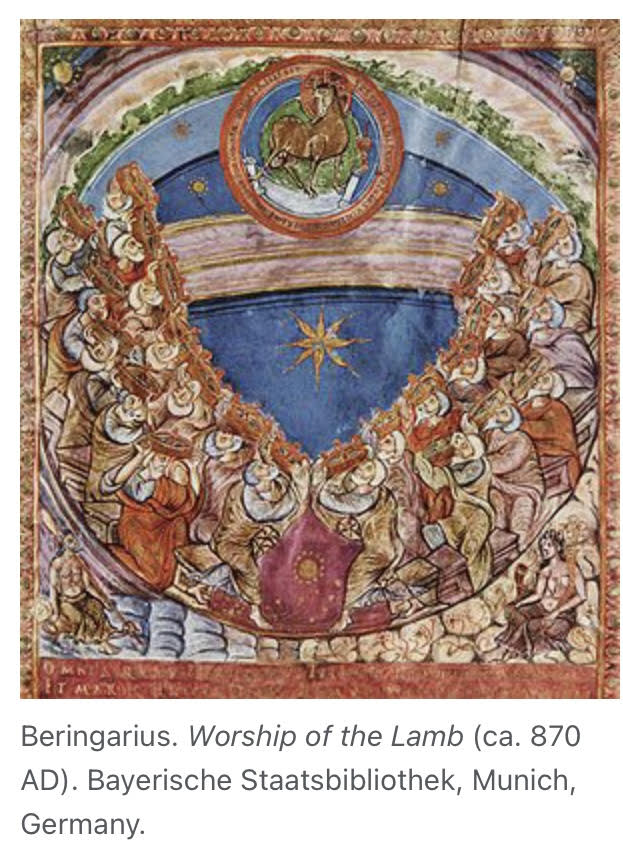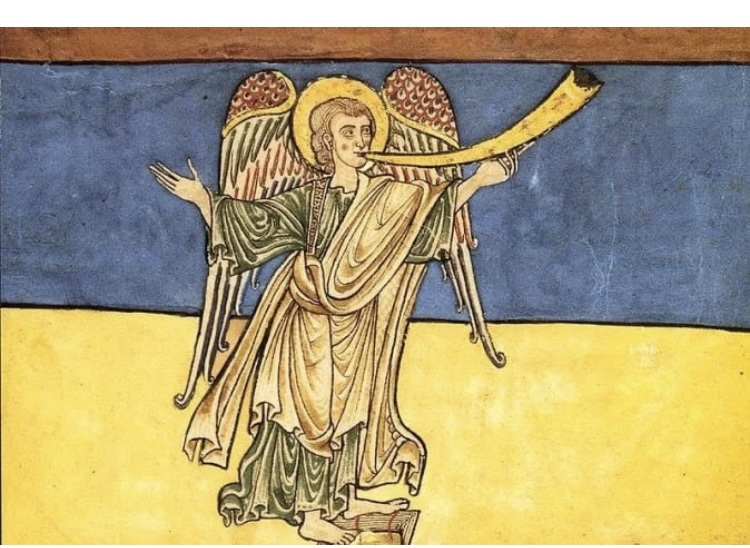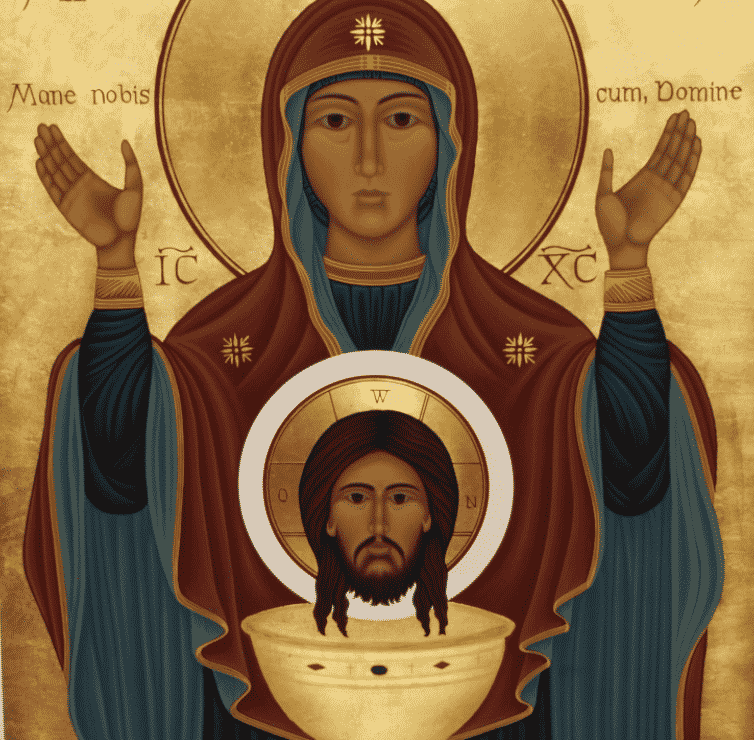
I was about to write my next entry on the Apocalypse when the new issue of Worship arrived in the mail. Worship is one of the leading academic journals about liturgy and liturgical studies; it always has essays and book reviews that fascinate and illuminate. There was an essay in this issue about liturgical hymnography and look what I discovered: a mention of liturgical hymns in the Apocalypse!
The portrayal of the heavenly liturgy in the Book of Revelation features many hymns that must surely reflect the worship experience of the author and intended audience. Again, they are clearly in a psalm style and their diction mines the Psalter extensively, but they would also have been immediately recognized as a “send-up” of the hymns commissioned for the imperial cult. Take, for example, Revelation 11:17-18.
We give you thanks, O Lord God, the sovereign over all (pantokrator) who are and who were, that you have taken your great power and begun to reign. (Rev. 11:17)
The Christians of the seven churches in the Roman province of Asia would have immediately recognized this as a parody of the acclamations of the divinized Roman Emperor sung at the imperial festivals that were a regular feature of life in their cities.
(Margaret Daly-Denton, “Instilling the Word” in Worship (July 2021), pp. 200-201.
In the Apocalypse, not only do we encounter the history of the Church and the wonderful works of God’s power (told over and over, from a variety of perspectives), we also encounter the Christians thumbing their noses at the imperial power hell-bent on destroying them.
We should remember that as St. Paul and other New Testament authors were urging the Christians to “obey the civil authorities” and “Give unto Caesar the things that are Caesar’s,” it was those same civil authorities and the same imperial policies that were actively putting the Christians to death; the same authorities that were to be obeyed were making martyrs.
Modern Christians who urge cooperation with civil authorities when they think the authorities will legislate in their favor and resistance when they don’t care for the civil policies, quoting those New Testament authors, should remember that: submission to civil authorities was first and foremost given to civil authorities that oppose everything the Church stands for.
Early Christian political theory can be summed up in one sentence: Don’t give your enemies any more reason to arrest you than they already have.


